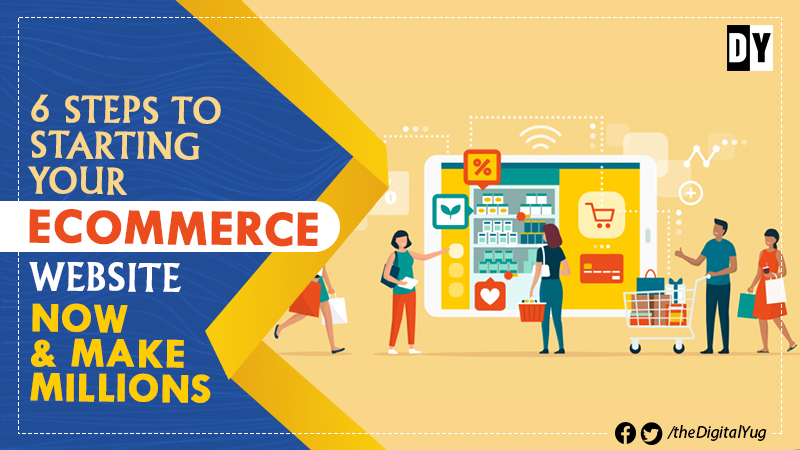
With the introduction of smartphones, you may now shop from anywhere and at any time using a wireless device connected to the internet. This revolution began the Ecommerce trend globally and is now taking over the world. However, establishing an e-commerce business may be intimidating and frustrating at times. In India, the trend is still new, and people are yet not aware of the term, E-commerce. Today, in this article, we will know everything about starting an e-commerce business.
Ecommerce, often known as online or electronic commerce, is the purchasing and selling of products/services through the internet. Ecommerce is frequently used to refer to the online sale of tangible goods, but it can also refer to any type of economic transaction made possible by the internet. While e-business encompasses all aspects of running an online firm, e-commerce focuses on the exchange of goods and services as well as the data & money transfers required for completing these transactions.
The first step for starting your profitable E-commerce business is finding an ideal product or niche for selling. You must be smart in locating products difficult to locate in stores or on famous e-commerce platforms such as Amazon.
Make sure to focus on more specific things that appeal to a particular demographic. Making a list of potential things to sell in your store is an excellent place to start. Consider what you, your friends, coworkers, or family members would be interested in.
Platforms for Finding Business Ideas:
It is necessary to test your product’s viability before launching it in the market. If your product doesn’t hold much potential and you launch it, all your money would go to waste.
Ask yourself these questions:
It doesn’t matter how cool the product appears to be. It should be viable from a business standpoint!
The third step is to source the product you intend to sell. When you did your research in Step 1, you should have already thought about how you’re going to approach this process. You can produce your products, purchase them from wholesalers, or — if you’re offering your services, such as a consultant — just describe and list them on your business website.
Ask Yourself These Questions:
Competitor analysis can help you find better things to market and offer you a better idea of starting an online business. You’ve identified your product, assessed its potential, and identified a vendor. Now, have a look at what your competitors are doing. When conducting a competitor analysis, keep the following points in mind:
The next step is to build your Ecommerce website or get it ready from a professional developer. There are hundreds of e-commerce shopping cart platforms to choose from & all of them serve a different purpose. Things like loading speed, functionality, compatibility with various payment channels, your web developer capabilities, SEO-friendly features, and compatibility with your business structure all be carefully considered.
Some Top Ecommerce Platforms
The finest e-commerce sites spend a significant amount of money on online marketing. You can use various marketing tactics, including Google AdWords, social media ads, word-of-mouth marketing, email marketing, SEO, and more. At the most basic level, you’ll want to optimize your business website for SEO and use any online marketing tools that your e-commerce platform provides.
You’ll want to keep track of which marketing methods are working and which aren’t after your e-commerce firm is up and running and you start receiving orders — primarily if you’re investing money in them. You’ll be able to tweak and adapt your marketing plan as time goes on to see what works best for your company.
Choose a platform that offers all required capabilities at an affordable price. The best Ecommerce platforms in India are:
Latest Updates from around the world
Most read stories, topics, and videos
Latest Updates from around the world